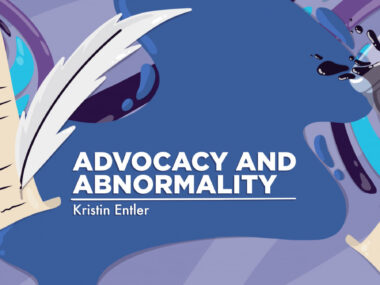Flares, Poorer Lung Health Can Follow Becoming a Parent With CF
Written by |

People with mild-to-moderate cystic fibrosis (CF) commonly experience a decline in lung function and an uptick in exacerbations shortly after becoming parents, a study reports.
The use of CFTR modulator therapy can lessen the negative health impacts of newfound parenthood, findings also suggest. Its authors called for more research into being a parent with CF.
The study, “Parenthood impacts short-term health outcomes in people with cystic fibrosis,” was published in the Journal of Cystic Fibrosis.
With available care, people with CF are living longer than was once possible, and more and more patients are choosing to become parents. How parenthood can affect health in CF, however, has not been thoroughly studied. Available data largely have focused on the physiological impacts of pregnancy for women, rather than the broader concept of having children.
Scientists in the U.S. analyzed data from the United Kingdom CF registry collected between 2015 to 2019. They identified 296 individuals who had experienced a live birth — theirs or their partner’s — between 2016 to 2018. Among these patients, just over half (57.4%) were female, nearly all were white, and their mean age was just under 30 years.
They then used statistical analyses to compare aspects of health in the year before and after becoming a parent, looking for changes.
Specifically, the researchers looked at changes in lung health by assessing percent predicted forced expiratory volume in one second (ppFEV1), a measure of how much air a person can forcefully exhale in a second. They also assessed the frequency of exacerbations, or times when symptoms suddenly worsen, by looking at times when patients were treated with intravenous (IV) antibiotics, commonly used to control CF exacerbations.
Changes in patients’ body mass index (BMI), a ratio of weight to height that is associated with lung function in CF patients, were also evaluated.
Results indicated that lung function decreased significantly following the birth of a child. On average, ppFEV1 lowered by 3.19% from the year before to the year after a child’s birth. BMI also decreased — by a mean of 0.28 kilograms per square meter — while the frequency of exacerbations significantly increased by about 30%.
“Among people with CF with mild to moderate disease, parenthood adversely impacted health outcomes in the year following the birth of a child compared to the year before birth,” the researchers wrote.
Analyses based on sex showed a significant decline in BMI among women but not men. Rates of ppFEV1 decline or exacerbations did not significantly differ based on sex. Older age was not associated with any of the outcomes analyzed.
“Sex significantly modified the change in BMI, but not pulmonary health,” the researchers wrote.
Declines in patients’ health might be attributed to the distractions of parenthood, from “sleep deprivation” to less time for self-care, they suggested, noting “people with CF report spending 2 to 3 [hours] per day on their care routines.”
Of the study’s participants, 43 were on CFTR modulators — a recent class of therapies that can increase the function of the CFTR protein, whose defect causes CF, in people with specific mutations.
Statistical analyses showed that, after adjusting for age and sex, patients using a CFTR modulator actually experienced a slight increase in ppFEV1 after becoming parents, in contrast to the significant decline seen in those not using these treatments. Modulator therapy did not significantly affect BMI or exacerbation rates.
“Use of CFTR modulators significantly mitigated the impact of parenthood on lung function, but did not alter the trajectory of BMI or the number of pulmonary exacerbation treatment days,” the researchers wrote.
The team noted several limitations in this work: the study was done based on data from the U.K., so results may not be reflective of experiences elsewhere. Additionally, the study only assessed people who became parents via pregnancy and live birth; the effects of other pathways to parenthood, like adoption or fostering, remain unexplored. This study also focused on relatively short-term outcomes.
Overall, these results “highlight the need for more comprehensive data surrounding parenthood in CF,” the researchers concluded. A study “examining the health impacts of parenthood in the age of widespread use of highly effective CFTR modulators is greatly needed,” they added.
They stressed that doctors need to initiate open and honest discussions with patients thinking of starting a family as part of routine CF care.
“To address the changing priorities of people with CF afforded by increased longevity, CF care providers must consider how to best incorporate reproductive health and discussions of family-building into the CF care model,” they wrote.







